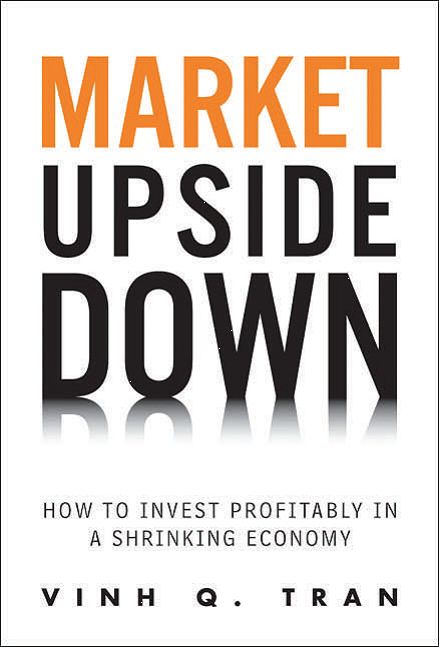January 31, 2010 -- This entry is my first on the eve of the release of Market Upside Down: How to Invest Profitably in a Shrinking Economy. I’m excited about it after 9 months of gestation and waiting. Although it is my third book, the birth of a new “baby” is always uplifting to the spirit.
One thing for sure: the economy, the stock market and Washington do not seem to be in a mood to celebrate. The election of the supposedly Republican Scott Brown of Massachusetts to the Senate had spin-doctors of all shades jumping and Obama vowed to freeze discretionary spending by $250 billion over 10 years (and declared other shifts in programs and rhetoric to pacify the right.)
Are you kidding? The deficit this year has swollen to $1.56 trillion, a new record. Last year’s deficit of $1.41 trillion was already the highest since WWII. How big is enough for the market to take notice of the unreality of rising debt from continuing budget deficits?
The budget “savings” (more like spending deferred until after 2012 when Obama hopes to be re-elected) are little more than a drop in the bucket. They would be less than 3% of the projected $9 trillion of additional deficits over the next 10 years even assuming they will be realized (but, like everything in Washington, don’t count the chicken until they hatch!) Anyway, the proposed spending in President Obama’s 2011 budget will make sure federal spending will keep rising for years to come. Already federal spending in 2010 will reach 25.4% of GDP. He promised spending would fall back to 23% of GDP by mid-decade. In his second term? How convenient! Even so, the share of federal spending to GDP will have reached a permanently new higher plateau.
Increasingly the government will elbow out the private sector as the dominant creator of jobs and economic incentives. The Japanese have gone through all this rising government spending and budget deficits, and look at what has happened to their economy and stock market in the last 20 years.
In the meantime, the TARP bailout watchdog warned that the federal government’s responses to the financial meltdown make it more likely that future crises will be worse. "Even if TARP saved our financial system from driving off a cliff back in 2008, absent meaningful reform, we are still driving on the same winding mountain road, but this time in a faster car," Neil Barofsky, the special inspector general for the troubled asset relief program, wrote in his latest quarterly report.
How comforting is that being in a Toyota with the accelerator stuck to the floor?


